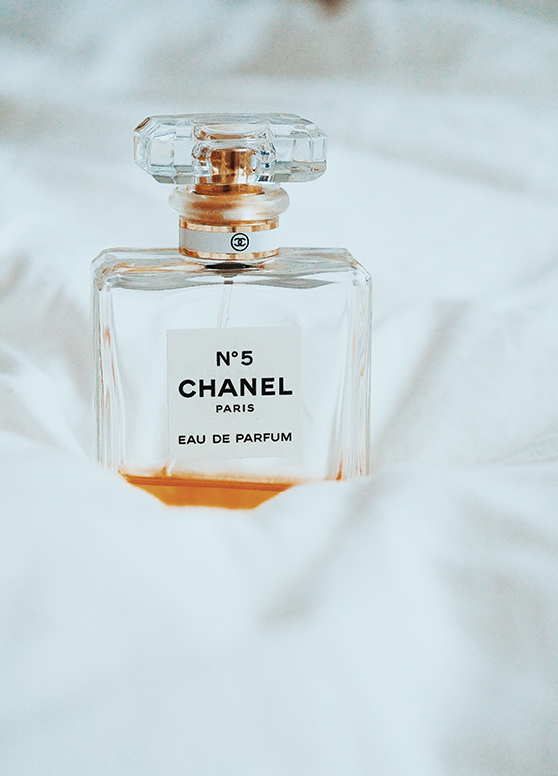
AUGUST 11, 2020 / Skincare
Understanding Fragrance in Cosmetics

Everyone loves a good fragrance in their cosmetics. They make you feel clean, sexy, and refreshed. There are some things to take into consideration when using fragrance in cosmetics, as certain issues can arise. You want to make sure you’re picking the ones best for you.

What Is Fragrance?
Fragrance in cosmetics includes essential oils, synthetic fragrance, extracts that smell, and oils.
Whether synthetic or natural, both contain many different chemicals to build up their noticeable fragrance.
They’re typically labeled fragrance/parfum on the ingredient list.
Why Is There Fragrance In Cosmetics?
Fragrance does not do anything for your skin. It is included in cosmetics formulations for two primary reasons.
Fragrance is used for marketing, creating a connection with the scent and brand. Once the consumer is hooked on the smell, they’re hooked on the brand BOOM $. The sense of smell is most directly linked to memory and an emotional response.
Fragrance is also used to heighten your experience and enjoyment, and well that’s pretty self-explanatory.
Is Fragrance In Cosmetics Bad?
Fragrance is not the devil.
However, it can be irritating, sensitizing and cause allergic reactions.
Anyone can develop an allergic reaction to any ingredient in any product, but fragrance is the most common allergen.
Who Should Avoid Fragrance In Cosmetics?
You should avoid fragrance if you have sensitive skin, eczema, rosacea, or a history of skin allergies. Fragrance can worsen these issues.
Here’s the twist: even if you never had an allergy to a fragrance before, you can develop one over time. Some people are more likely than others, but anyone can be at risk.
If you are using multiple leave on fragranced cosmetics for a long period of time, this will increase your chances of developing a sensitivity leading to an allergic contact dermatitis. Certain ingredients on your skin, in this case fragrance, cause your body’s immune system to put up a “defense blocker.” So, every time you encounter this certain ingredient, you’ll have an allergic reaction.
I recommend fragrance free leave on skincare products. I find it unnecessary to include fragrance as it contributes nothing to the skin and can be a potential risk for an allergic reaction or irritation.
If you like a product, you don’t want to worry about using it for a long time and possibly building a sensitivity towards it.
I understand the desire to use fragrance, but I would recommend limiting them to wash off products like face wash, body wash and cleansing oils etc. Due to the short contact time they’re less of an issue. Although I wouldn’t use them for a long period of time.
If you really love a specific scented body wash use it for a month or so, then switch to a fragrance-free option the next month. This is a healthy balance.

Natural Isn't Always Better
Essential oils cause the most problems. They’re known to be the most irritating and cause the most allergic reactions.
This whole concept of “natural is better” really needs to fly out the window, because it’s simply not true.
Limonene a citrus oil, linalool from lavender and geraniol extracted from geraniums, are common allergens and sensitizing ingredients. These are just the most common 3 amongst several.
Essential oils have just as many chemicals in them as synthetic.
Synthetic is the way to go, because they are controlled and designed in a lab to eliminate common allergens.
The problem with natural ingredients is that they’re made up of so many different compounds.
Lavender isn’t just lavender…it has a bunch of different compounds in the plant that make up its entire self.
These other compounds become the problem because they are unsafe for the skin if the manufacturer isn’t appropriately extracting them. It all differs from manufacturer to manufacture.
Long story short, you’re better off opting for synthetic because lab-made fragrance excludes these irritating compounds and other common irritants.
Do not let the word synthetic freak you out. Ingredients made in labs are more than safe. Don’t be afraid of the science behind quality formulations.
You might have been using a synthetic fragrance for a long time and wouldn’t have known the difference.
Unfortunately, marketing tactics can be deceptive and call out safe ingredients “harmful.”
If you want the tea on this, I go into more detail in my Clean Beauty Is A Scam post.
Why Is The Fragrance Formulation Not Listed On The Ingredient List?
Fragrance formulas are not listed because fragrance is big bizz. Brands don’t want other manufactures stealing their formula.
A lot of brands are remembered by their scents and they don’t want that taken away from them. Don’t blame em!
Another reason is that there are a lot of ingredients that go into one fragrance to build up a scent. They ether won’t fit on the bottle or it doesn’t look esthetically pleasing.
A lot of false rumors will say companies do this because they’re hiding “toxic” chemicals blah blah. That is not the truth.
The moral of the story is fragrance is not something to fear it’s something to be aware of and to understand the potential risks. Always read the ingredient list, to make sure you know what you’re dealing with.
With Love,
Nicole
Share It:
